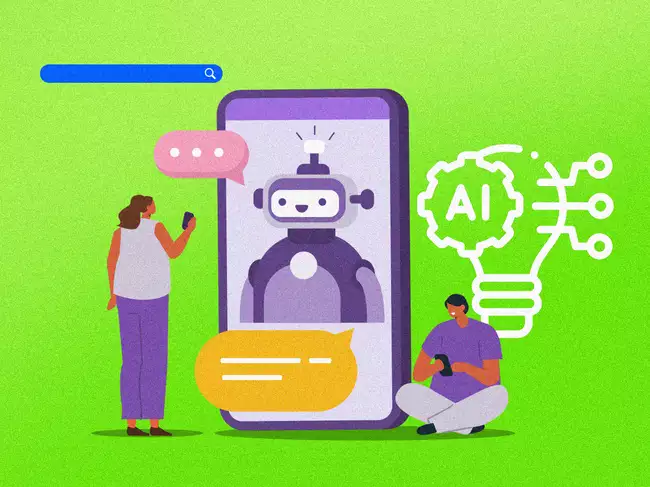Amazon’s CEO Andy Jassy recently mentioned that their AI coding assistant, Amazon Q, has saved the company $260 million and 4,500 developer years. Meta CEO Mark Zuckerberg believes there could eventually be more AI agents than people in the world. Big tech companies like OpenAI, Meta, Amazon, and Google envision agentic AI as the future of personal assistance and business functions, achieving automation of tasks in ways previously unimaginable.
An AI agent is a software program that can interact with its environment, learn, adapt, choose its own goals, and execute actions on behalf of a user. It can automate tasks, solve complex problems, think on its feet, and act autonomously. If OpenAI’s large language model ChatGPT’s launch in November 2022 took the world by storm, AI agents built on some of these models are the next big thing in the world of AI, especially for enterprise usage.
Productivity, efficiency cost saving
Companies such as E42.ai, Fractal, Zoho, Supervity.ai and several others are building these AI agents, capable of acting independently and solving complex tasks to automate processes in industries like finance, HR, and customer service, and enhance data analysis. The AI agent market is rapidly growing. Businesses are leveraging these agents to reduce costs, optimise workflows, and unlock new capabilities, with the AI market projected to expand significantly in the coming years.
According to Emergen Research, the agentic AI market was valued at $30.89 billion, with 20% of the business concentrated in North America. The segment is expected to grow at an annual rate of 31.68% over the next few years. This is evident in the ways startups are integrating agents into functions like HR, finance, IT service management, customer services, data science, procurement, and more. New York-based Fulcrum Digital, which serves large operations in India, is set to unveil an Enterprise areas.
“In insurance, we offer agents for claim processing, premium pricing forecasts, and underwriting support,” said Rajesh Sinha, founder and chairman of Fulcrum Digital. “For education, we have student admission and course recommendation agents. Retail benefits from personalised shopping and inventory management agents.”
“Financial services utilise our real-time credit scoring and transaction anomaly detection agents. HR departments leverage our performance review feedback and audit agents. We also provide specialised agents for document processing, sales support, and customer service across industries,” Sinha added.
Pune-based E42.ai reported its multifunctional ‘AI workers’ have automated over 200 processes, saved 200,000 man-hours, and resolved 3 million queries. For instance, its accounts payable AI executive, Neil, processed 10 million invoices from various channels like chat, vendor portals, and emails in 13 languages without human intervention. Similarly, its AI IT Ops Manager, Walter, autonomously resolves IT help desk queries, according to the company.
“These agents excel at processing and analysing massive datasets at unprecedented speeds, uncovering valuable insights that would be time-consuming or impossible for humans to find,” said Sanjeev Menon, cofounder and head of product & tech at E42.ai.
Ramprakash Ramamoorthy, director of AI research at Manage Engine, the enterprise IT software solutions division of Zoho Corp said that businesses are likely to begin deploying agents starting 2025.
But, there are hurdles
While there’s a huge potential for AI agents to enhance productivity, save costs and automate mundane tasks, the process of building and deploying these agents is fraught with challenges. Most critical of those is data scarcity and data quality. In many areas, the amount of data needed to train AI systems is scarce. Companies in healthcare and banking also refrain from training AI with sensitive customer data due to privacy concerns.
Greater autonomy to AI agents could also mean them executing incorrect actions, for instance, meddling with health data to give improper prescriptions, or taking biased actions while processing insurance claims. Sometimes, AI systems trained on past data can fail to make future predictions, in areas like making stock investment recommendations. It is also difficult to integrate agents with legacy IT applications of enterprises. For instance, integrating a new AI-based recommendation engine with an old ecommerce platform might require significant changes to the platform’s API

